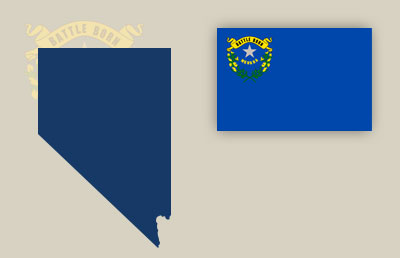Nevada Adopts Provisions on Fiduciary Access to Digital Assets

Nevada has enacted provisions regarding its Revised Uniform Fiduciary Access to Digital Assets Act. These provisions are effective as of October 1, 2017.
Definitions
The first several new sections of the Act define key terms such as “catalogue of electronic communications,” “content to an electronic communication,” “digital asset,” and “electronic-communication service.”
Application
Section 31 specifies that the new provisions apply to the following:
- Fiduciaries acting under a will or power of attorney
- Personal representatives acting on behalf of decedents
- Guardianship proceedings
- Trustees acting under a trust
- Custodians, if the user currently resides in Nevada or resided in Nevada at the time of his or her death
However, this chapter does not apply to a digital asset of an employer used by an employee in the ordinary course of the employer’s business.
Rights of Users
Section 32 directs that users (any persons having an account with a custodian) may use an online tool for the purpose of directing a custodian to disclose some or all of the user’s digital assets, including electronic communications. In cases where a user has not used an online tool, or if the custodian has not provided an online tool, a user may allow or prohibit in a will, trust, power of attorney, or other record, disclosure to a fiduciary of some or all of the user’s digital assets.
Rights of Custodians
Sections 34-41 confer upon custodians the rights to do the following:
- Grant a fiduciary full access to the user’s account
- Grant a fiduciary partial access to the user’s account sufficient to perform the tasks with which the fiduciary is charged
- Provide a fiduciary a copy in a record of any digital asset that the user could have accessed if the user were alive and had full capacity and access to the account
- Disclose to the personal representative of the estate of the user the contents of electronic communications and electronic catalogues sent or received by the user, when the deceased user consented or a court directs such disclosures
- Disclose the content of electronic communications and electronic catalogues to an agent in cases where a power of attorney expressly grants an agent authority over electronic communications sent or received by the principal, so long as the agent provides the custodian with the following:
- A written or electronic request for disclosure
- An original or copy of the power of attorney
- A certification, made by the agent under penalty of perjury, that the power of attorney is effective, and
- If requested by the custodian, certain identifying information of the principal’s account and evidence connecting the account to the principal
- Disclose to a trustee any digital asset of the account held in trust, including a catalogue of electronic communications of the trustee and the content of electronic communications
Duties of Fiduciaries
Fiduciaries charged with managing tangible property must exercise the duty of care, the duty of loyalty, and the duty of confidentiality.
Rights of Fiduciaries
Fiduciaries charged with managing the tangible property of a decedent have the right to access the property and any digital asset stored in it and are considered authorized users for the purpose of computer-fraud and unauthorized-computer-access laws. Fiduciaries may request a custodian to terminate a user’s account, so long as the request is written, either physically or electronically, and accompanied by a certified copy of the decedent user’s death certificate or a certified copy of the court order appointing the representative, court order, power of attorney or trust giving the fiduciary authority over the account. The custodian may request additional information from the fiduciary.
For the full text of Nevada Assembly Bill 239 please refer to
https://www.legiscan.com/NV/text/AB239/id/1616593/Nevada-2017-AB239-Enrolled.pdf
Elizabeth Dailey, JD, is a Regulatory Compliance Director with CLA. She is a graduate of the University of New Hampshire and earned her juris doctor at New England Law. She is admitted to the Massachusetts Bar.

Comments are closed.